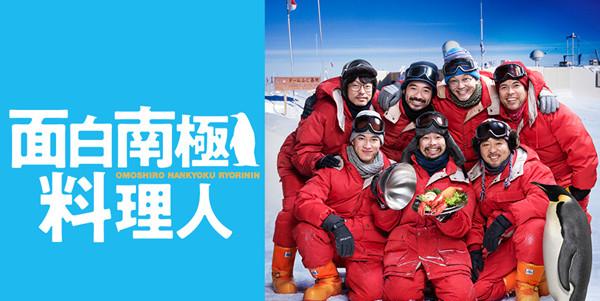The decline of the "gourmet fan" genre that Japanese dramas are proud of is obvious to all, except for the "lonely foodie" Inokashira Goro who is still relentlessly eating, and there are few new gourmet fans emerging.
Although Japan's major television stations continue to rely on adding new characters and plots to build food scenes, it can even be said that they do everything to the extreme - "Bulun Canteen" starring Kei Tanaka is both food, color, and food color, and the topic is a bit, but the TV series itself is not successful; for example, Takahata Mitsuki's "Forgotten Sachiko" in which Takahata Plays the Iron Mask Woman Eating, the scene construction and the causal relationship construction of food healing are established, but the audience just does not eat this set; the "Rice Man" where the underworld big brother lives at home. After retirement, "The Food of the Wild Samurai", which produces samurai fantasies while eating in a tavern, "As Long as there is Hokusai and Rice", which only shows cooking shots and no eating shots... There are many tricks, innovations, and bold plots, but without exception, they cannot become phenomenal works. This type of trend has gone.
Tv Tokyo, which insists on being the first line in the creation of gourmet fans, launched the "Happy Antarctic Kitchen" (also translated as "Happy Antarctic Chef") with the Antarctic as the background in the Cambrian period of gourmet fans, the theme is also cold, antarctica is also cold, only rice is hot, but in such an environment, you can only sing a song "Cool".

"Happy Antarctic Kitchen" is adapted from the prose novel series of the same name, and the author, Jun Nishimura himself, is a member of the Coast Guard and is sent to the Antarctic to cook for the scientific expedition team. In 2009, the first book in the prose novel series, Happy Table, was released as the film Antarctic Cooker.
The film stars Masato Sakai, an actor who is very familiar and loved by Chinese and Japanese audiences, and throughout the film, Jun Nishimura, a member of the Coast Guard played by Masato Sakai, spends most of his time cooking alone in the kitchen, constantly cooking a variety of dishes, and then eating with other team members.
Diet became the light of desire and the fire of life in the boring and monotonous life of antarctic scientific expeditions — and, of course, the family members in Japan were supported.
The film was a great success, and was nominated for the 50th Japanese Film Director Newcomer Award, the 2009 Shinto Kanejin Gold Award, and the 29th Fujimoto Award Newcomer Award.
The director's method of shooting the protagonist in "Antarctic Chef" is very similar to the classic opening scene in Ang Lee's work "Eating Men and Women", knife work, seasoning, plating, kneading rice balls... Although Japanese cuisine is not as performative as Chinese food in terms of production techniques, it can ultimately reflect the serious attitude and professionalism of the chefs to their profession. The picture is quiet, but it doesn't feel boring to watch.
Cooking shots from the movie "Antarctic Cooker"
Cooking for two hours, eating for twenty minutes is a daily routine, the work of the protagonist of the cook, either reflects the protagonist's experience or love for this profession, or highlights its superb technology, the film version of "Antarctic Cooker" wins in that it does not use language to depict the characters, let the characters stay quietly in the kitchen to cook, constantly repeat the actions of the hand, one by one to pinch the rice balls, the process is not boring, but the protagonist is still laughing and being carried by the expedition team members on bicycles on the Antarctic glacier to broadcast lunch content, The character's love for the profession, the love for food, the care for his colleagues and his own interest are spontaneous, and the audience will understand it without the need for others to sing it.
When it comes to TV Tokyo's late-night TV series version of "Happy Antarctic Kitchen", the focus has changed from "gourmet fan" to "late-night slot", the food part only uses the time of a song, the late-night part occupies the vast majority of the part, and the protagonist is not highlighted, as if he is only responsible for singing a song in the TV series to make a meal.
There are also many subdivisions of Japan's good-looking cuisine, and there are basically only two kinds, one is the theme of food, showing the relationship between food and people, typical of which is "Late Night Canteen", the food that appears as a heat source is just a reminder of the temperature of the human relationship in the audience; the other is to deal with food as the main body, or focus on diners, such as "Lonely Foodie", "Forgotten Sachiko", or focus on the people who cook, such as "Rice Man" and "Antarctic Cooker", how to deal with food, Why you make such a choice, and what kind of ideas are extracted from this choice, is actually part of the food that adds color.
From this point of view, "Happy Antarctic Kitchen" is more like a record of how boring expedition members who joined the cooking plot saved themselves on the verge of mental breakdown, food and people are not subjects, and the content is lackluster.
In order to innovate, Japanese food fans are too focused on some specific groups of people, overtime men of advertising agencies, Antarctic expedition team members, lovelorn iron mask women, male members who habitually cheat... Their story does not need food to support the temperature, the process and way of handling food has nothing to do with the change of human concepts, food, processing food as a relatively independent unit appears, lonely, like a bowl of cold rice, it is no wonder that most of the new debut food is not good.